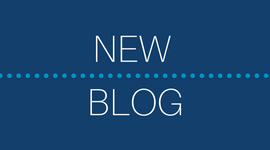Shaping the future: Our strategy for research and innovation in humanitarian response.

Shaping the future: Our strategy for research and innovation in humanitarian response.


As part of the pilot phase of the intimate partner violence prevention intervention, we collected baseline data in Bokolmayo camp in Dollo Ado, Ethiopia. Prior to the fieldwork, we had teams of experts with different but related expertise draft, develop and refine the baseline data collection instrument and the various tools, adapting the instruments utilised in the intervention in Butajira, Ethiopia. Once we were in the field, we focused on recruiting, training and selecting qualified enumerators.
The training was not about asking questions and recording responses. It was about respecting and adhering to the ethical principles set forth, acting as a researcher and obtaining accurate responses, establishing a very good rapport with the respondents so that they trust the enumerator and share their honest opinion.
The project team closely collaborated with the refugee regulatory bodies, Administration for Refugees and Returnee Affairs (ARRA) and the United Nations High Commissioner for Refugees (UNHCR), to identify all of the households living in the zones of the camp that were selected for participation in the study. Next we compiled detailed information about the households and identified those individuals or couples eligible to be engaged in the intervention based on the study criteria. From the list of 650 eligible households, we then randomly selected 180 households for participation in the pilot study. Later, these 180 households were randomly assigned to one of four groups, or study arms:
Baseline data was collected from all 180 households, and our team achieved a 100% response rate. During data collection, our focus was on obtaining high quality data that would help us to understand behaviours, attitudes and practices related to intimate partner violence. Hence, multiple preparations and numerous briefing sessions were held among the field team to ensure rigorous data collection. This included close supervision of the team, review of data collected each day and consistency checks. The data collection instrument included both direct questions around experience of intimate partner violence as recommended by the World Health Organisation, but also novel methods to measure violence.
Following the baseline data collection, the next step is to start the intervention sessions among groups of women, men, and couples. Endline data will be collected after the intervention..
Samuel Tewolde
Intervention Specialist for Emergency Operations
Addis Ababa, Ethiopia
July 2018

 Please upgrade your browser
Please upgrade your browser
You are seeing this because you are using a browser that is not supported. The Elrha website is built using modern technology and standards. We recommend upgrading your browser with one of the following to properly view our website:
Windows MacPlease note that this is not an exhaustive list of browsers. We also do not intend to recommend a particular manufacturer's browser over another's; only to suggest upgrading to a browser version that is compliant with current standards to give you the best and most secure browsing experience.